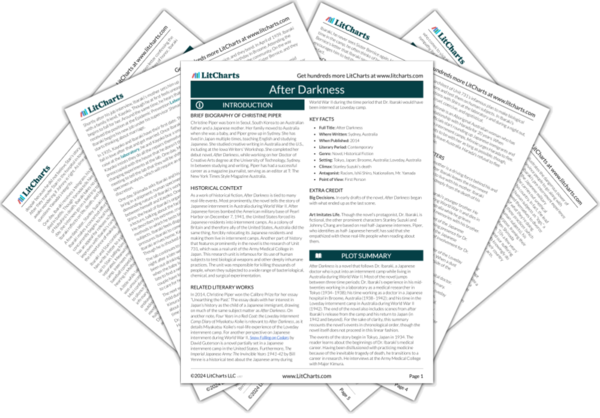Ibaraki’s internal questioning of Yamada’s virtues indicates his shifting perspective of his reality at the camp and, in turn, a growing understanding of the existence of prejudice even among his friends. In his dream, he embodies one of the lower-class workers of Broome trying to make a living by finding pearls. This dream further highlights Ibaraki’s feeling of being lost in trying to understand the world.
